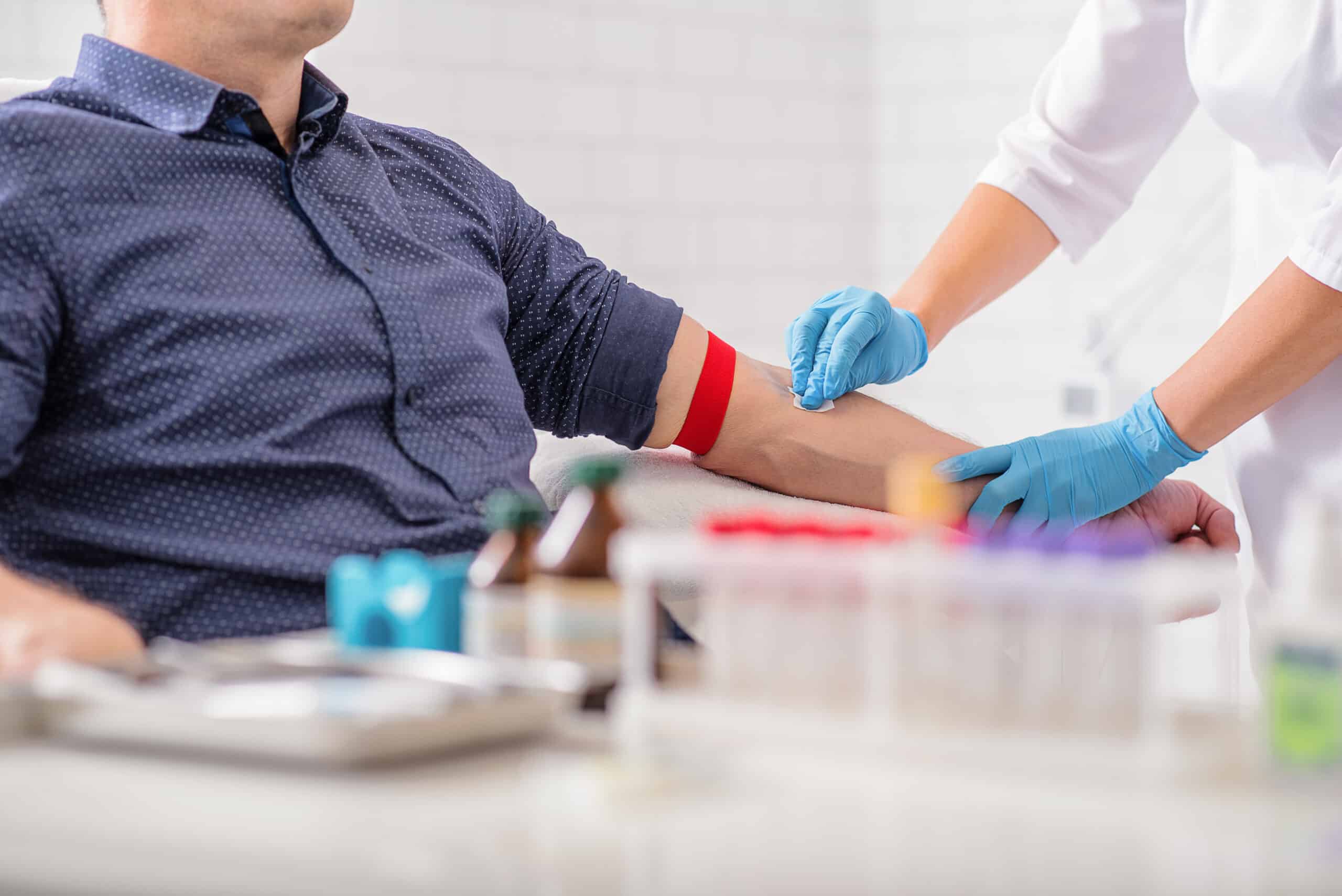
A groundbreaking study by researchers at the National Centre for Asbestos Related Diseases (NCARD), The Kids Research Institute and the Harry Perkins Institute of Medical Research (the Perkins) has identified blood markers that could help predict how well mesothelioma patients respond to treatment.
This discovery could transform how treatment decisions are made, enabling doctors to personalise care and improve outcomes for patients facing this challenging disease.
The research, published in Cell Reports Medicine was led by Dr Melvin Chin, who balances his role as a clinician treating mesothelioma patients at Sir Charles Gairdner Hospital with his research at NCARD.
The study was co-led by Professors Joost Lesterhuis and Timo Lassmann from The Kids Research Institute and The University of Western Australia (UWA), Professor Anna Nowak from NCARD, UWA, Institute for Respiratory Health (IRH) and SCGH and Professor Alistair Forrest from the Perkins and UWA.
The team analysed blood and tumour samples from 54 participants in the DREAM clinical trial.
This trial tested a combination of standard chemotherapy drugs–cisplatin and pemetrexed–with the immunotherapy drug durvalumab.
The results revealed that patients who responded well to this treatment had higher levels of specific immune cells, known as CD8 T effector memory (TEM) cells, in their blood both before and early in their treatment.
These cells, which exhibit “stem-like” properties, were able to self-renew and persist during therapy, potentially playing a critical role in driving positive outcomes.
Dr Melvin Chin explained the significance of the findings, stating, “These results represent an important step forward in mesothelioma treatment.
“While we still need to validate these findings in larger trials, identifying these biological markers could help us move closer to personalised treatment approaches for mesothelioma patients.”
By linking changes in peripheral blood with immune activity in tumour samples, the researchers found that combining insights from both sources offered the most reliable way to predict treatment responses.
This integrated approach could help doctors tailor treatments to individual patients, enhancing care quality and effectiveness.
Mesothelioma, is a cancer caused by asbestos exposure and affects the lining of the lungs and WA has the highest per capita incidence of this cancer in the world.
This makes NCARD’s research especially significant to the local community, where asbestos-related diseases remain a major concern.
The study exemplifies the value of collaboration in advancing medical research.
NCARD operates as part of UWA and IRH, and this research brought together expertise from the Perkins, The Kids, RIKEN in Japan, the NHMRC Clinical Trials Centre and the Thoracic Oncology Group of Australia.
Funding came from organisations including the Cancer Research Trust, the Mesothelioma Applied Research Foundation, iCare, Cancer Council WA and NHMRC, and the US Department of Defense supported this effort.
Participants for the DREAM trial were recruited from 12 hospitals across Australia, highlighting the nationwide scope of this research effort.
By uncovering how combination chemo-immunotherapy works, this study opens pathways to more personalised and effective treatment strategies for people with mesothelioma, offering renewed hope for improved care.
